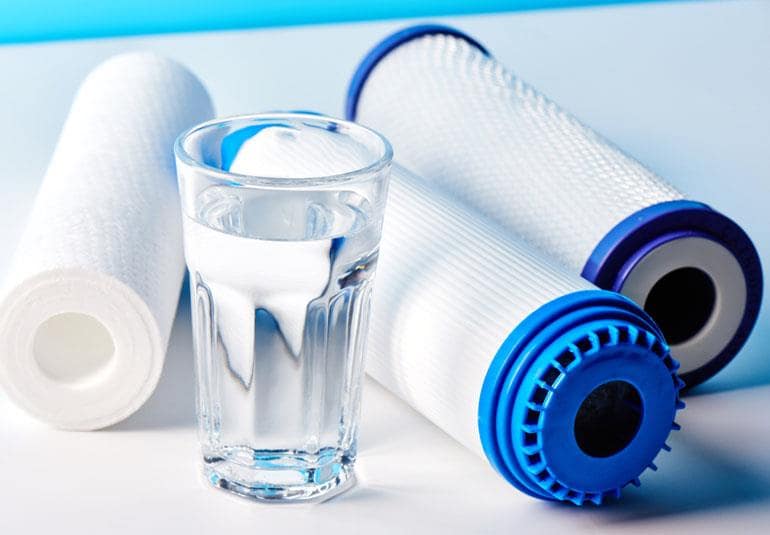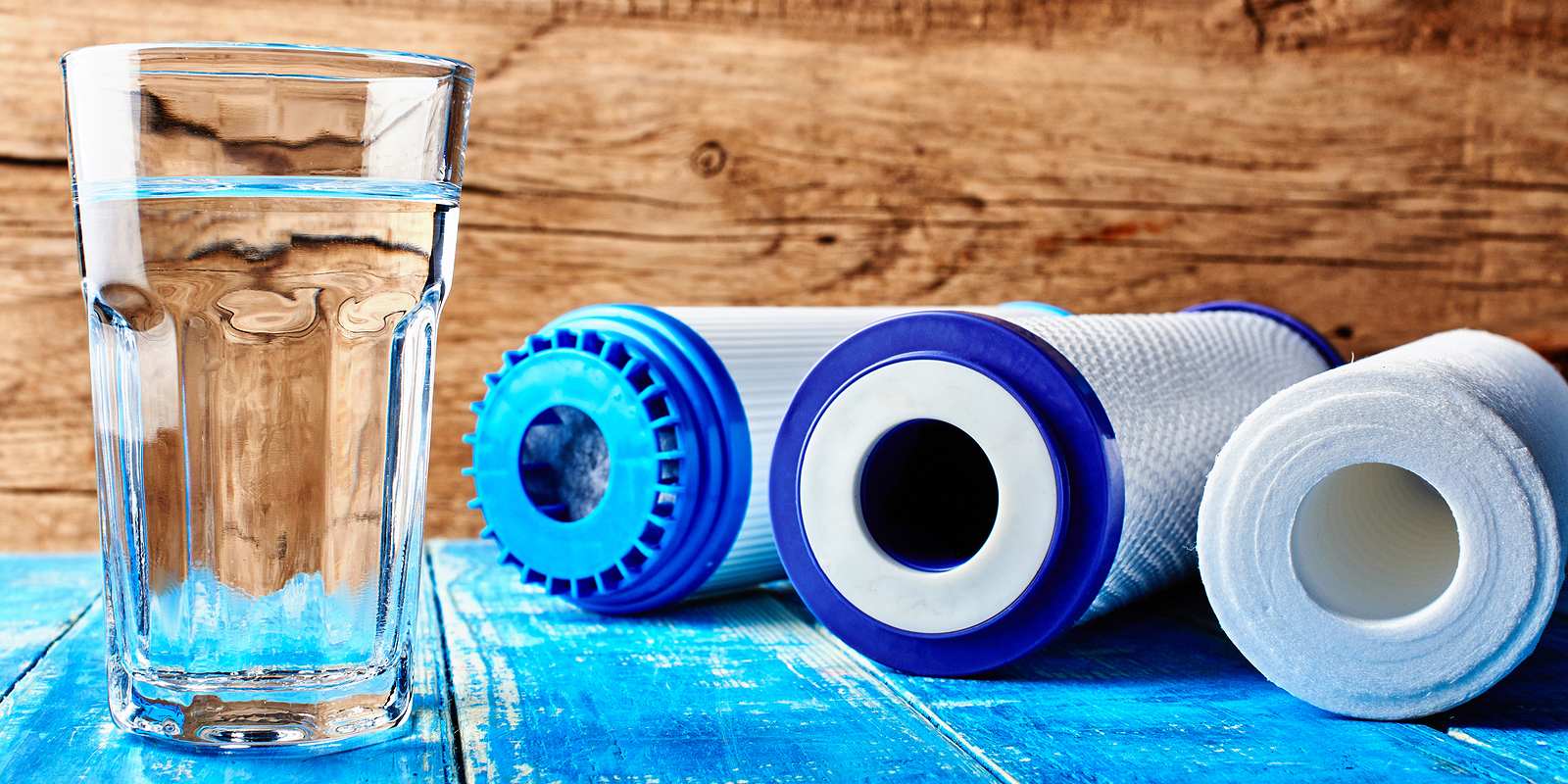Are you looking for a way to bring pure, clean water into your home? Water filteration can help to protect your health and ensure that you have access to clean, filtered water in your own home. This blog post, will dive into the world of home water filter and provide a comprehensive guide on the filter systems for health and wellness. Learn more about what type of filter works best, the features to look for in a water filter, and how to choose the right system for your home.
Understanding The Importance Of Clean Water
Clean water is essential for maintaining good health and wellness. They often take water for granted, assuming that it is clean and safe to drink. However, the reality is that the tap water can contain various contaminants that can pose a risk to the health.
The importance of clean water cannot be overstated. Water is not only essential for hydration, but it also plays a vital role in the overall well-being. It helps to regulate body temperature, aids in digestion, flushes out toxins, and supports the proper functioning of organs and cells.
 Types Of Water Contaminants To Watch Out For
Types Of Water Contaminants To Watch Out For
When it comes to water contaminants, it’s important to be aware of the potential risks lurking in the tap water. Understanding the types of contaminants that can be present is the first step in choosing the right water filter system for your home.
One common type of water contaminant is bacteria. Harmful bacteria, such as E. Coli and Salmonella, can make their way into the water supply and cause severe gastrointestinal illnesses.
Heavy metals, such as lead, arsenic, and mercury, are also commonly found in tap water. These metals can have serious health implications, especially for children and pregnant women. Exposure to heavy metals can lead to developmental delays, cognitive issues, and even organ damage.
Different Types Of Water filteration And Purifiers Available
When it comes to choosing a water filter for your home, there are several different types of systems to consider. Each type of filter or purifier has its own unique features and benefits, so it’s important to understand your options before making a decision.
One popular type of water filter is a carbon filter. Carbon filters use activated carbon to remove contaminants from the water. These filters are effective at removing chlorine, sediment, and certain chemicals but may not be as effective at removing bacteria or heavy metals.
Another option is a reverse osmosis filter. This type of filter uses a membrane to remove impurities from the water. Reverse osmosis filters are highly effective at removing a wide range of contaminants, including bacteria, viruses, heavy metals, and chemicals.
Use Ultraviolet Light To Kill Bacteria,
UV filters are another option to consider. These filters use ultraviolet light to kill bacteria, viruses, and other microorganisms in the water. UV filters are typically used in conjunction with other types of filters to provide a comprehensive purification system.
Water distillers are another option for purifying your water. Distillers heat the water to create steam, which is then condensed back into liquid form, leaving behind contaminants. Distillers are effective at removing a wide range of impurities, but they can be slower and may require more maintenance.
Factors To Consider Before Choosing The Best Water Filter
Choosing the right best water filter is a crucial decision that can have a significant impact on the health and well-being of you and your family. With so many options available on the market, it can be overwhelming to determine which one is best suited to your needs. Here are some factors to consider before making a decision.
First and foremost, it’s important to assess the specific contaminants present in your water supply. Conduct a water test or check the annual Consumer Confidence Report provided by your local water utility to identify the contaminants you need to target.
Flow Rate And Capacity Of The Water Filter
Next, consider the flow rate and capacity of the water filter. The flow rate refers to the amount of water the filter can process per minute, while the capacity refers to how many gallons the filter can purify before needing replacement.
Maintenance requirements should also be taken into account. Some filters require frequent cartridge replacements, while others may require periodic cleaning. Consider the time and effort you’re willing to invest in maintaining the filter and choose one that aligns with your preferences.
Comparing The Top Water Filter Systems On The Market
With so many water filter systems available on the market, it can be overwhelming to determine which one is the best for your home. To help you make an informed decision, we have compared some of the top water filter systems on the market.
One of the leading brands in the water filter industry is ABC Water. Their filter systems are known for their high-quality performance and durability. They offer a range of options, from under-sink filters to whole-house systems.
Filters Are Highly Efficient
Another top contender is XYZ purewater. Their filters use a unique combination of activated carbon and ion exchange technology to effectively remove impurities from the water. XYZ purewater filteration are highly efficient and provide a steady flow of clean, filtered water.
If you’re looking for a more budget-friendly option, LMN Filters is a great choice. They offer affordable filter systems that are still highly effective at removing contaminants. LMN Filters are easy to install and require minimal maintenance.
Features And Benefits Of Water Filter For Home
When it comes to choosing a water filter for your home, there are numerous features and benefits to consider. A high-quality water filter can provide you and your family with clean, pure water for drinking, cooking, and even bathing. Here are some of the top features and benefits of a water filter for home use:
Effective Contaminant Removal
A good water filter should be able to effectively remove a wide range of contaminants, including bacteria, viruses, heavy metals, chemicals, and more. This ensures that the water you consume is free from harmful substances, protecting your health and well-being.
Improved Taste and Odor
Many tap water sources have an unpleasant taste and odor due to the presence of chlorine or other chemicals. A water filter can help to remove these impurities, resulting in water that tastes and smells fresh and clean.
Cost Savings
Investing in a water filter for your home can save you money in the long run. Instead of constantly buying bottled water or relying on expensive water delivery services, you can have access to clean, filtered water right from your tap.
Convenience and Ease of Use
Most water filteration are easy to install and require minimal maintenance. They often come with user-friendly features such as filter change indicators or automatic shut-off valves, making them hassle-free to use.
Environmental Friendliness
By using a water filter instead of relying on bottled water, you are helping to reduce plastic waste and minimize your carbon footprint. It’s a small change that can have a big impact on the environment.
Sustainability And Eco-Friendliness Of The Best Water Purifier
Water filteration not only provide clean and pure water for your home, but they can also have a positive impact on the environment. When you choose the best water purifier for your needs, you are making a sustainable choice that reduces plastic waste and minimizes your carbon footprint.
By opting for a water filter system, you are eliminating the need for single-use plastic water bottles. The production and disposal of these bottles contribute to pollution and the depletion of natural resources.
Designed To Be Energy-Efficient
Furthermore, many water filter systems are designed to be energy-efficient. They utilize advanced filtration technologies that require minimal power consumption. This means that not only are you reducing plastic waste, but you are also conserving energy and lowering your overall environmental impact.
In addition to the sustainability benefits, water filteration can also help save you money in the long run. By avoiding the need to purchase bottled water, you can significantly reduce your expenses while still enjoying clean and pure water.
FAQs
Q: What Is The Difference Between A Water Filter And A Water Purifier?
A: While both filters and purifiers remove impurities from water, purifiers go a step further by eliminating bacteria and viruses that may be present. Filters primarily target sediment, chlorine, and certain chemicals.
Q: How Often Should I Replace The Filter?
A: The frequency of filter replacement depends on factors such as the filter type, the quality of your water, and your household’s water consumption. As a general guideline, it’s recommended to replace filters every 3-6 months for optimal performance.
Q: Are Water filteration Easy To Install?
A: Most water filteration come with detailed installation instructions and are designed to be user-friendly. If you’re not comfortable installing it yourself, you can always hire a professional to ensure it’s done correctly.
Q: Can I Use A Water Filter For Well Water?
A: Yes, there are water filteration specifically designed for well water. These filters are equipped to tackle common well water contaminants such as bacteria, iron, and sulfur.
Q: Are Water filteration Expensive?
A: The cost of a water filter can vary depending on the brand, type, and features. While some filters may have a higher upfront cost, consider the long-term savings by avoiding the need to purchase bottled water.
Q: Can Children And Pregnant Women Safely Drink Filtered Water?
A: Yes, filtered water is safe for everyone, including children and pregnant women. In fact, removing contaminants from water is especially important for their health and well-being.
Q: How Do I Know If My Water Filter Is Working?
A: Regular water testing can help determine the effectiveness of your filter. You can purchase home water testing kits or hire a professional to conduct the test.
Conclusion
In the comprehensive guide on the best water filter systems for health and wellness, we’ve covered everything you need to know about bringing pure, clean water into your home. We started by emphasizing the importance of clean water for maintaining good health and wellness. From there, we delved into the various types of water contaminants to watch out for, including bacteria, viruses, heavy metals, pesticides, industrial chemicals, and microplastics. We then explored the different types of water filteration and purifiers available, such as carbon filters, reverse osmosis filters, UV filters, and water distillers. Each type has its own unique features and benefits, so it’s important to choose one that effectively removes the specific contaminants present in your water supply.



